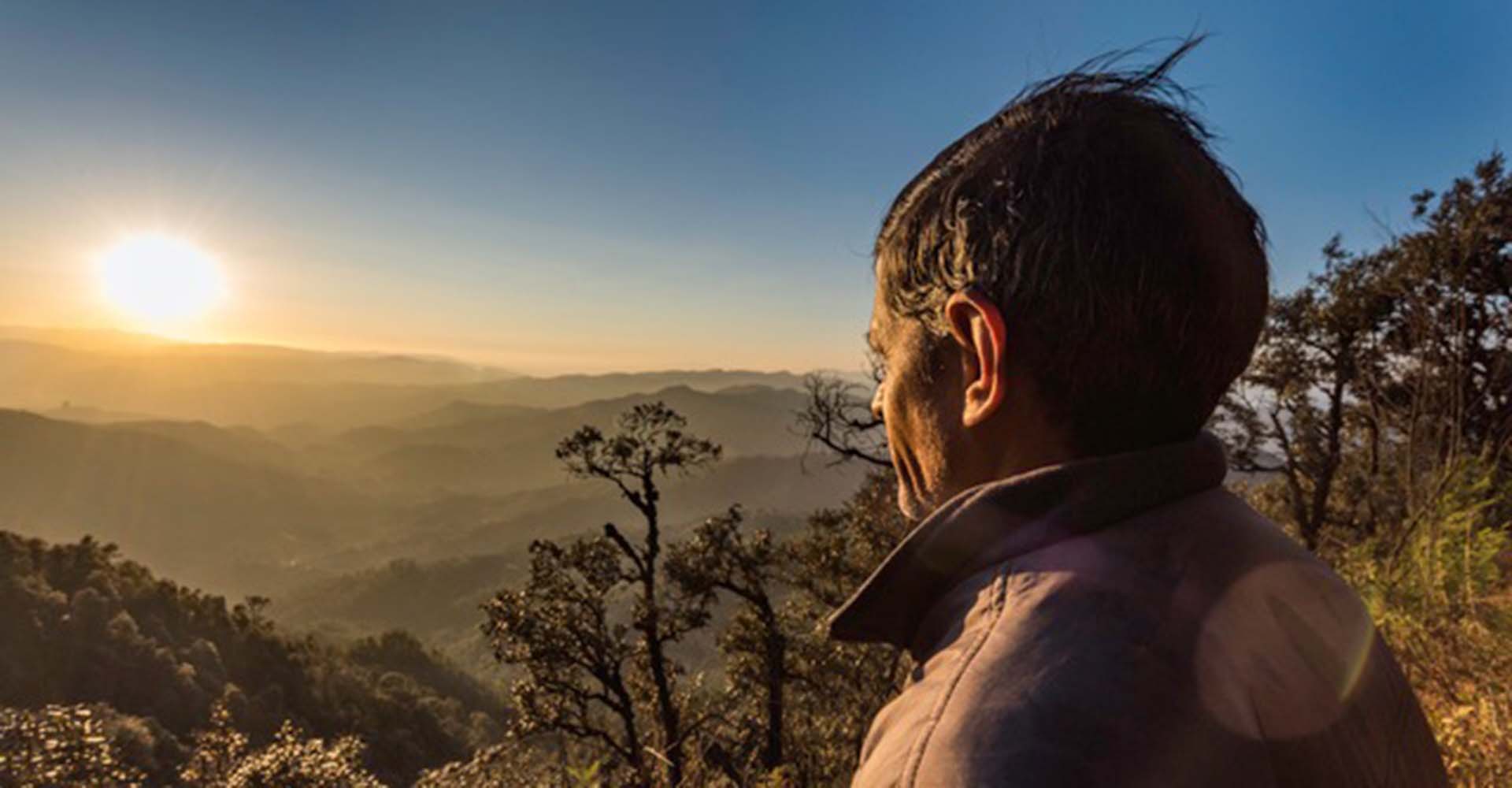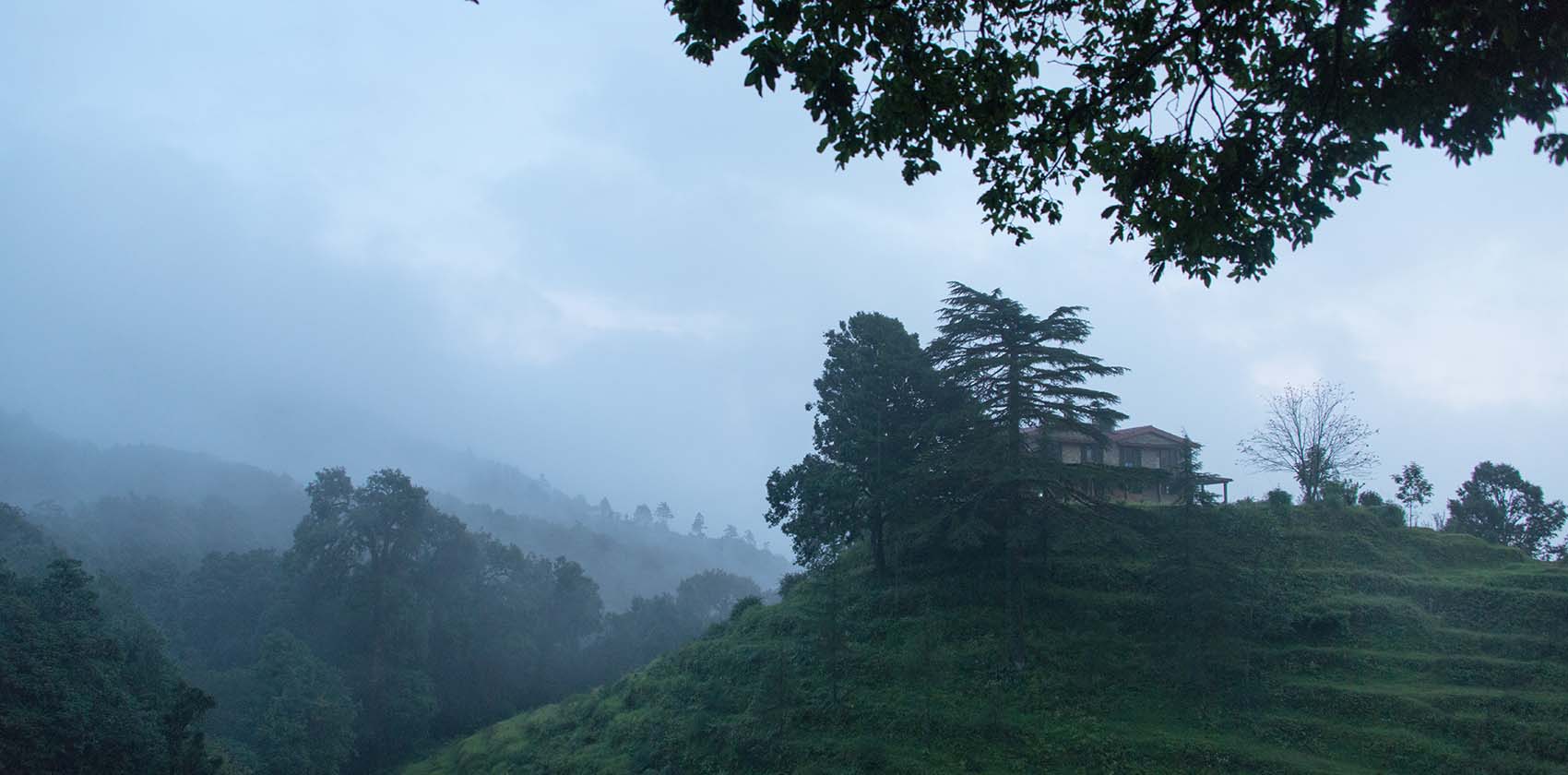
Binsar
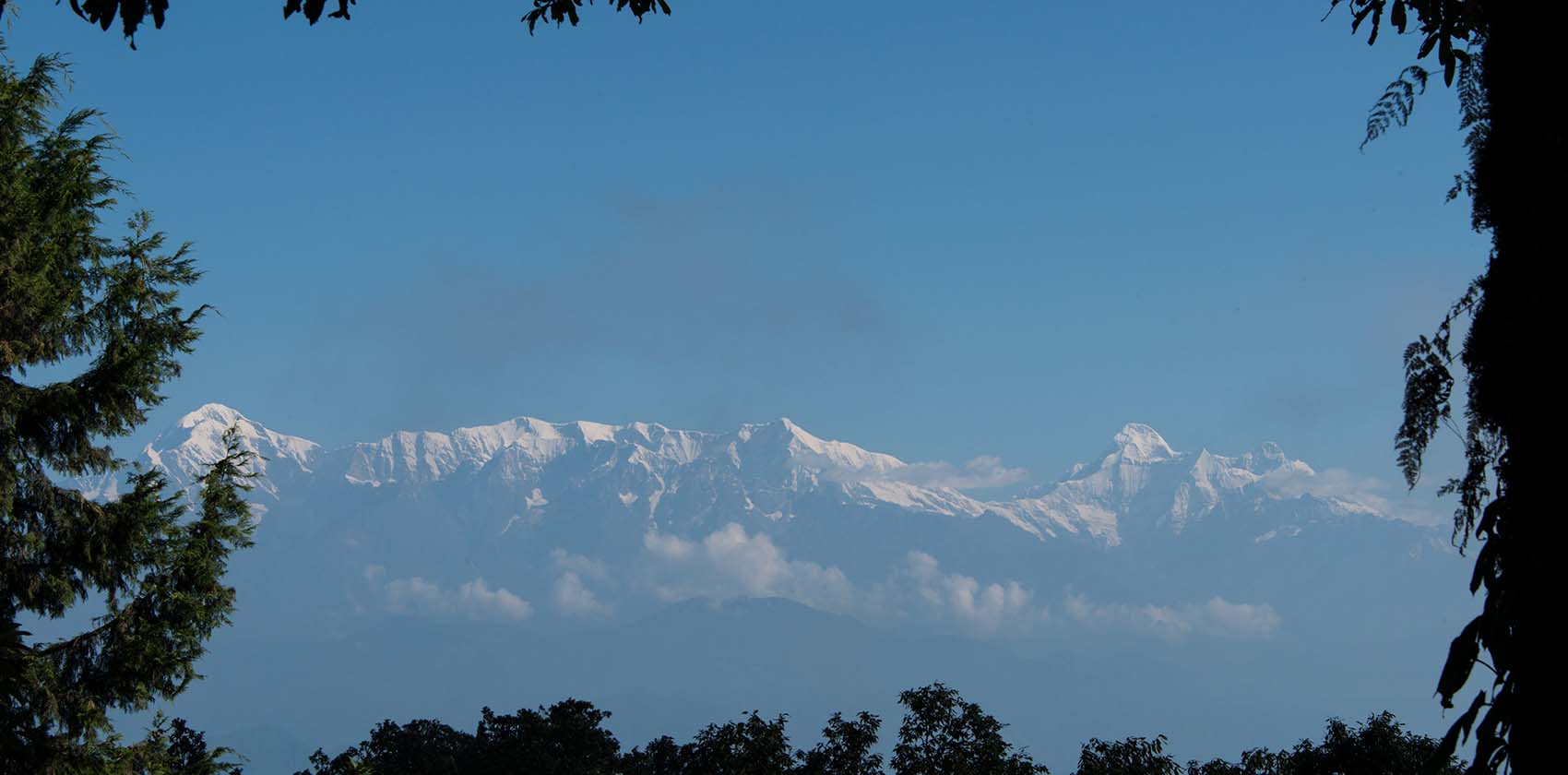
Binsar
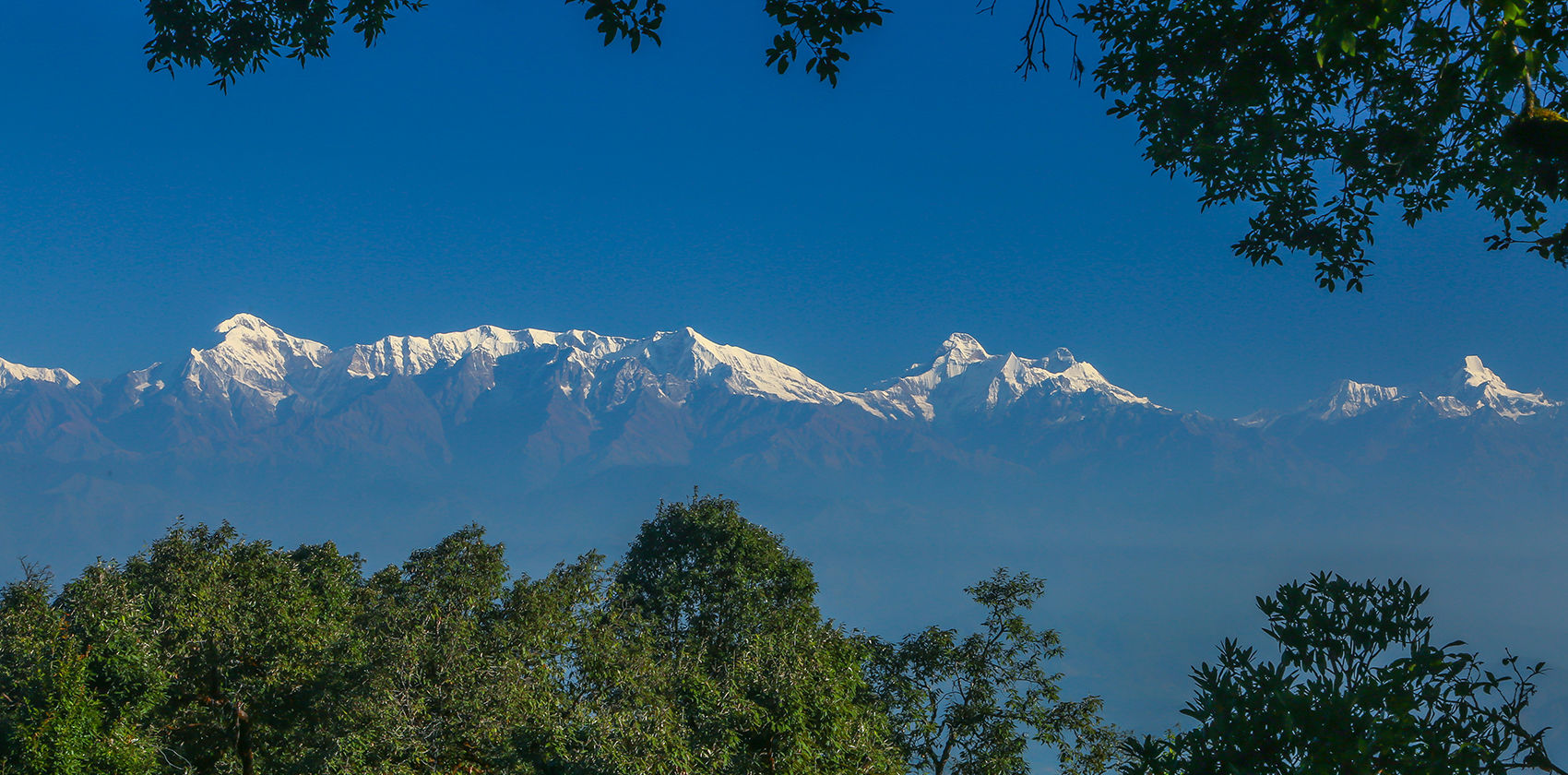
Binsar
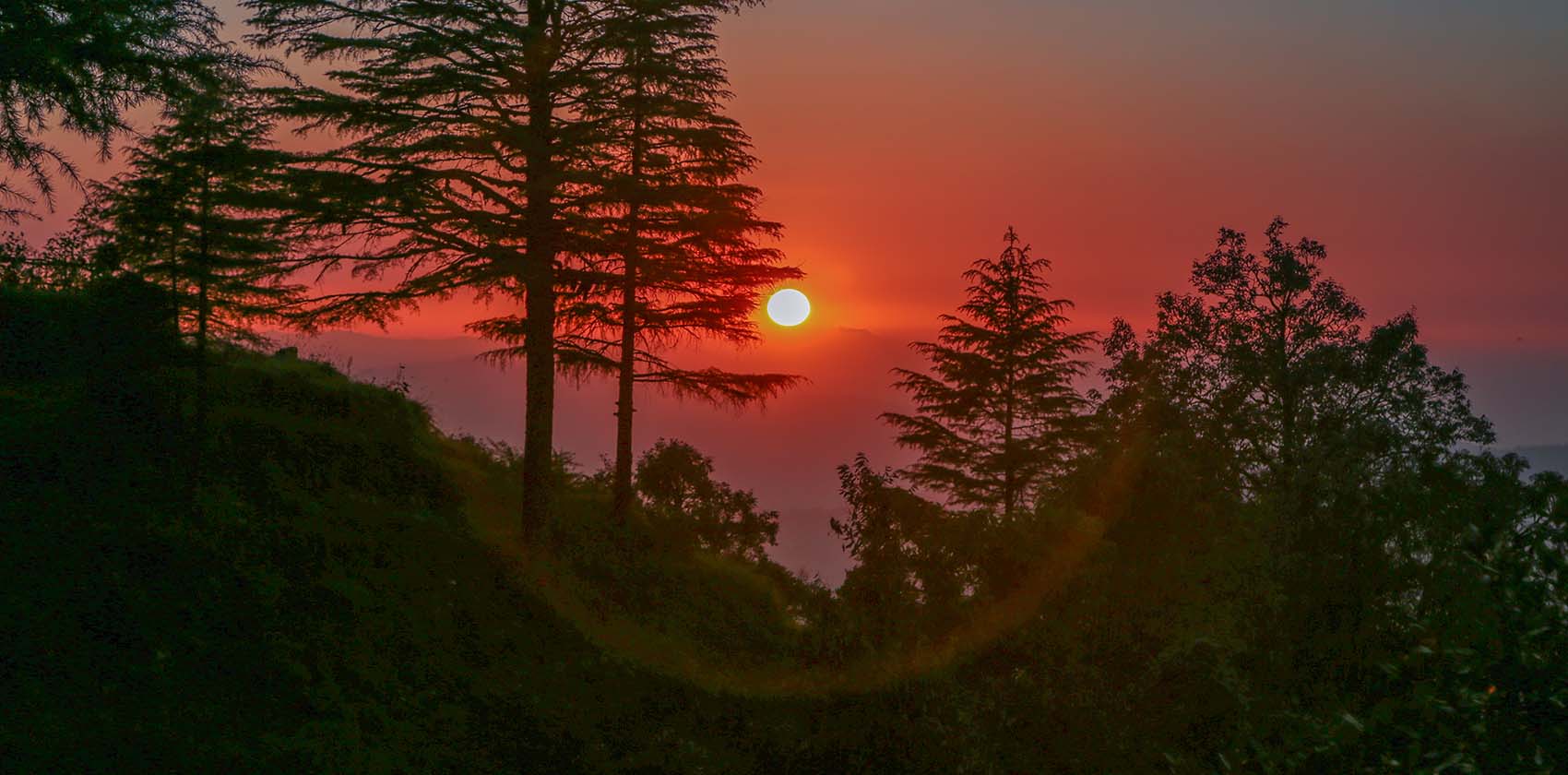
Binsar
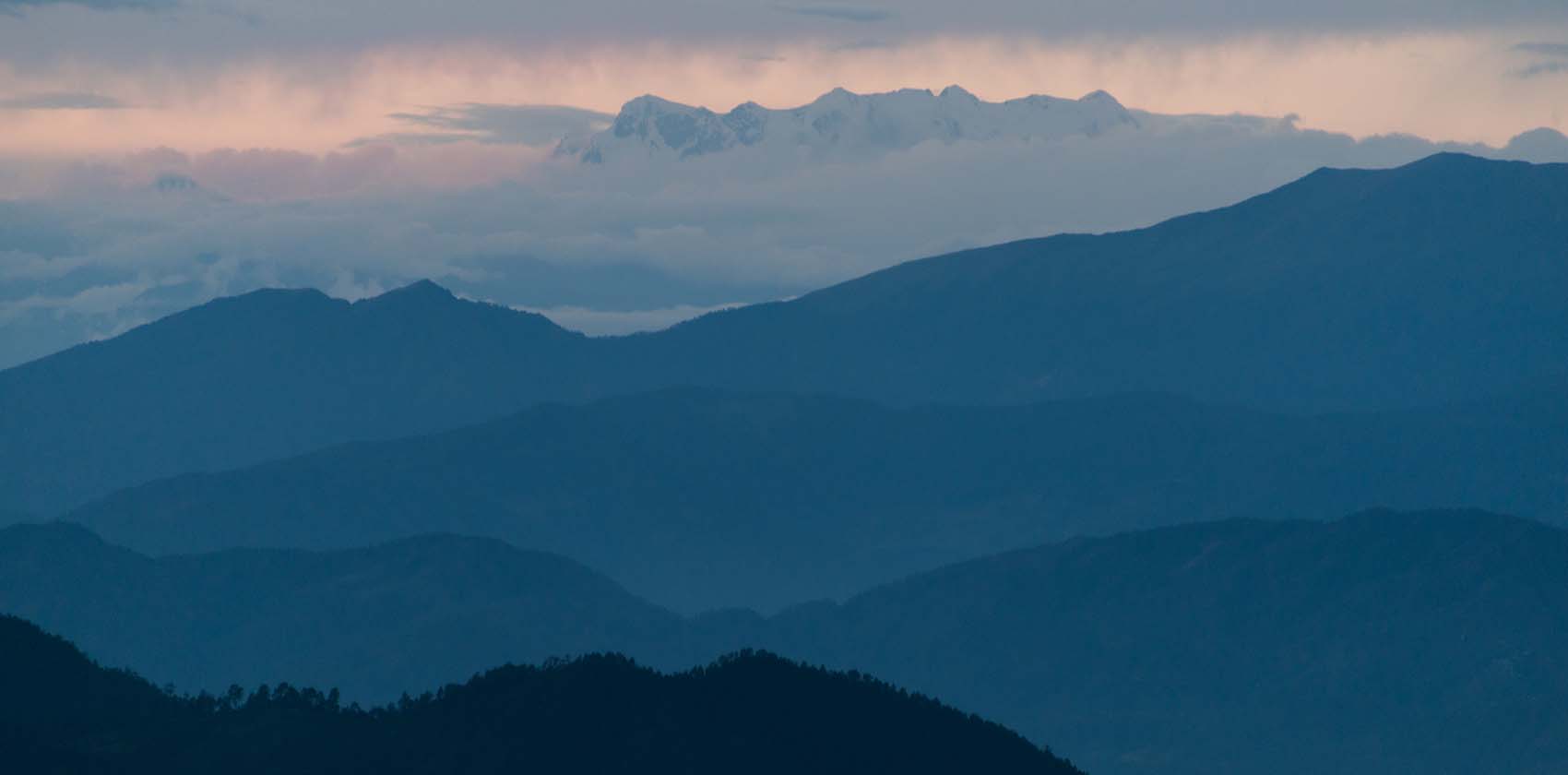
Every place has a sound. Be it the whistle of the north wind from the snowy Himalayan heights or the rustle of the forest in the wafting breeze, that gently rises from the Gangetic plains. But again, the turning wheels of time have often changed the sound of the spoken word. Here the sound of ‘Bineshwar’ changed to ‘Binsar’ during the British administration of the colonial era. A revered land of sacred forests since times immemorial, here is where the Saptrishis, the seven sages after whom the celestial constellation is named, meditated in the densely forested high mountain ravines, unconsciously burying deep a serenity that one can feel even today.
Maybe that’s what pulled Sir Henry Ramsay, the legendary commissioner of Kumaon, to Binsar, a place and it’s people he called his own. He covered trails, traversed uneven grounds in search of flawlessness and when the stories of Binsar’s beauty reached his ears, he finally stood there in stunned silence humbled by the breathtaking views of an unbroken 500 kms sweep of Himalayan peaks, stretching from Kedarnath in the West to Nepal and Tibet ranges in the East. With the mother goddess of Uttarakhand, Nanda Devi, at the centre of this awe inspiring northern skyline, he knew his heart was blissfully stolen forever!
Considered among the architects of British Kumaon, Ramsay carved out six estates of virgin forest for his top officials, which included the District Collector, Superintendent of Police, Army Commandant and a Methodist missionary. During the hot summer months, the administrative headquarters were shifted from Almora to Binsar and the Union Jack would flutter from a flag post on the highest peak, named Jhandi Dhar. Our estate belonged to a succession of District Collectors who would ride to work on horseback and hold mobile courts in the villages to dispense justice and attend to grievances. The ladies would occupy themselves with growing English flowers like roses and daffodils, having garden parties and ordering food and drink from Almora. For close to a century, the British maintained a lavish lifestyle on their estates, tended to by armies of servants at their beck and call.
